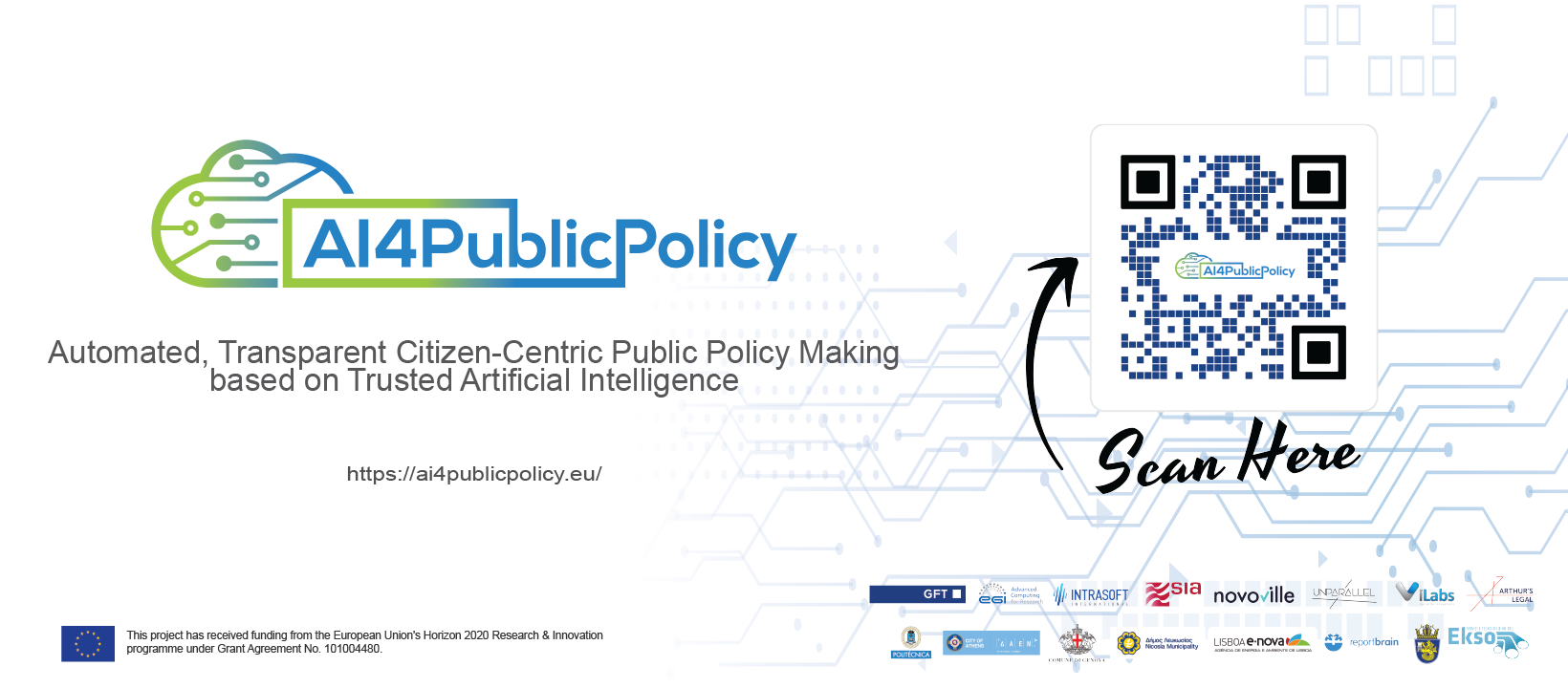Context Coupled with High Performance Computing (HPC) capabilities, cloud computing infrastructures enable the execution of advanced data analytics capabilities over datasets, to leverage the outcomes of Machine Learning (ML) and Deep Learning (DL) techniques towards holistic and actionable insights. In this context, policy development represents one of the most prominent applications of cloud computing and HPC for public administrations at local, regional and national levels, for harvesting vast amounts of data including governmental databases and interactions with the citizens, data from public infrastructures, as well as from alternative sources such as social networks and the public internet, while improving the scalability, cost-efficiency, flexibility, and quality of public services.
The Challenge The development, deployment and use of AI-based solutions for data-driven policy making is associated with a host of technical and organization challenges, which have not been yet adequately addressed. Those challenges are:
- Access to Cloud and HPC resources: Scalable infrastructures for storing and analysing datasets are not readily available within public authorities.
- Transparency: Several AI systems operate as “black-boxes”, making their use challenging, since policymaking must be transparent in terms of the rationale behind the proposed policies and the factual data that drive policy developments.
- Trustworthiness: AI systems for policy making must be secure, safe and resilient against malicious attempts, as well as address the Ethical AI challenges (as analysed by EU’s High-Level Expert Group (HLEG) on Artificial Intelligence).
- End-to-End Integration: AI’s potential in policy making is significantly underexploited, given it provides opportunities for automating and supporting policymaking activities, including front office, middle office, and back-office activities.
- Organizational Transformation: The introduction of AI systems in policy making leads to automation and efficiency, yet it challenges peoples’ roles and responsibilities, requiring significant upskilling and reskilling for policy making experts and other employees of the public administration.
The Solution The project’s Virtual Policy Making Environment (VPME) will integrate various tools and support policy makers to address policy development challenges based on leading edge AI technologies. The figure below illustrates the main resources and tools that will be integrated in the VPME.


